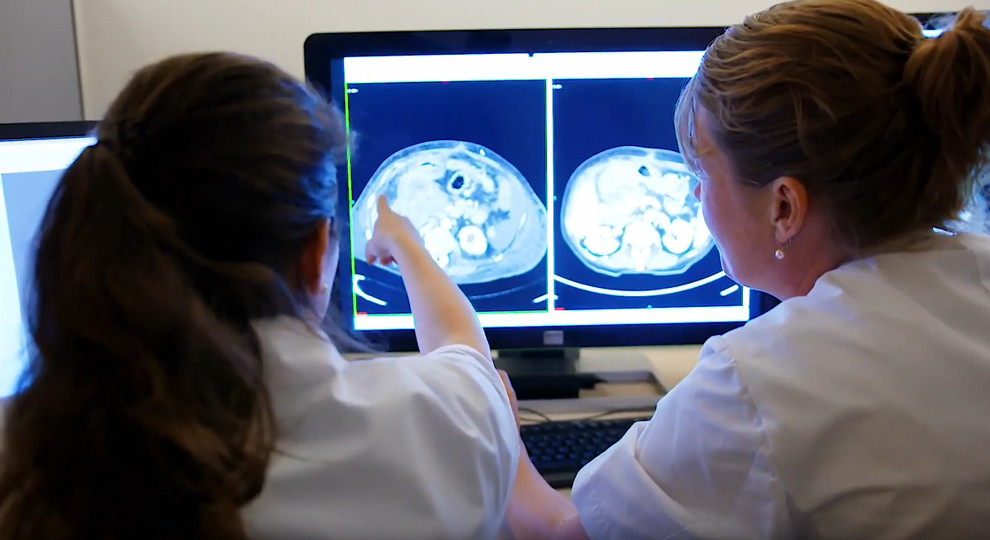Rectal cancer
Rectal cancer is a common type of cancer. Rectal cancer often occurs in people in their 60s and 70s, but people much younger than that are also at risk of developing this cancer type. Most rectal cancer patients under 50 have a hereditary increased risk.
Read more about the symptoms and the most common tests and treatments for bladder cancer on this page.
Visit our NKI Colorectal Cancer Center for more information about our specialists, patient satisfaction rates, innovation, and news.
Causes and symptoms rectal cancer
The primary symptoms of rectal cancer are bloody stools and changes in bowel habits. Other symptoms of rectal cancer include:
- constipation;
- diarrhea;
- loss of appetite;
- feeling of fullness;
- stomach ache;
- Weakness or fatigue;
- dizziness.
If you are receiving treatment for rectal cancer, there is a 5 to 10% chance that the tumor returns in the pelvis. This is called recurrent rectal cancer. We often discover these recurrences during check-ups at the outpatient clinic. Sometimes the recurrence causes symptoms such as bloody stools, pelvic pants, or noticeable swelling. You may experience problems with bowel movements.
Rapid diagnostics
It will take approximately eight days before you can start rapid diagnostics
Treatment team
Our specialists are experts at colorectal cancer such as colon and rectal cancer and join together every week for a multidisciplinary team meeting where they will discuss your personal situation, test results, and medical history in order to find the treatment option that best fits you. Your practicing physician will discuss your options with you. At the Netherlands Cancer Institute, we value your thoughts and input on your treatment.
 nl
nl
 Nederlands (Nederland)
Nederlands (Nederland)
 English (United States)
English (United States)





